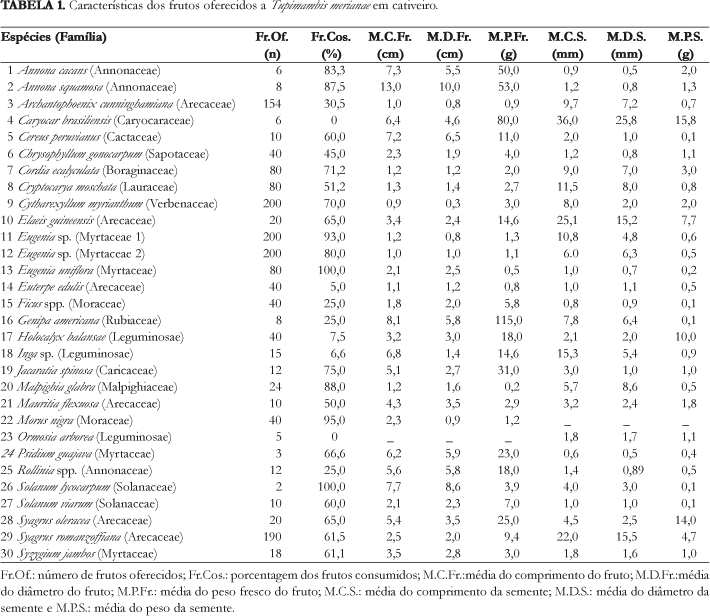Tegu lizards have a generalist diet and may play an important role as seed dispersers in semideciduous forests in south-east Brazil. We studied the frugivory and seed dispersal of tegu lizards using captive animals and offering wild fruits from a semideciduous forest. Thirty fruit species were eaten by the lizards in captivity, ranging from 0.81 to 10.0 cm (fruit diameter). Even large fruit adapted to dispersal by large mammals were swallowed (ex. Syagrus oleracea). There were no statistical differences in seed germination between seeds that passed through the lizard gut and the control in Eugenia uniflora (chi2 = 0.69, P>0.50), Genipa americana (chi2 = 6.4, P>0.975), Cereus peruvianus (chi2 = 0.018, P>0.10), and Solanum viarum (chi2 = 6.23, P>0.975). Seed retention time in the tegu gut ranged from 2224 h (Solanum lycocarpum) to 4344 h (for Syagrus romanzoffiana). Our results indicate that tegu lizards have a potential to be an important seed dispersers in the Neotropics.
Brazil; Atlantic forest; frugivory; fruits; lizard; seed dispersal; seed retention time; Tupinambis



